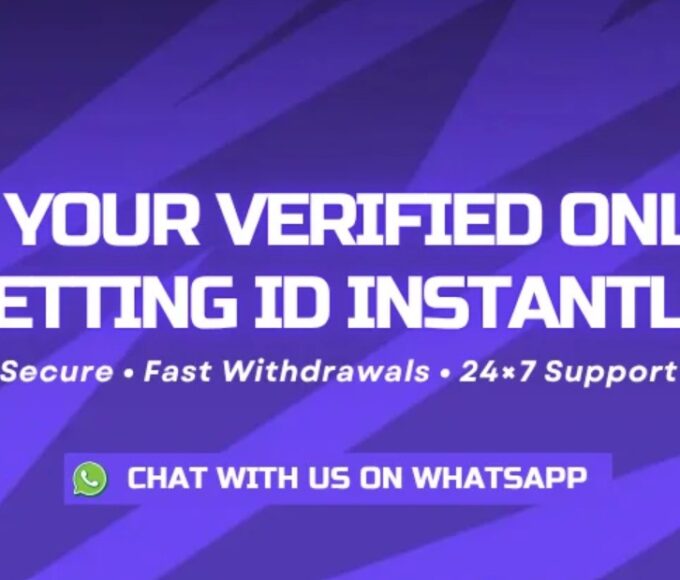Imagine you’re a transporter hauling a truckload of fresh produce across state lines, or maybe you’re running a warehouse storing frozen fish. One wrong move—say, a temperature glitch or a mislabeled crate—and you could be dealing with spoiled goods, angry customers, or worse, a food safety scandal. That’s where ISO 22000 certification swoops in like a superhero for your supply chain. It’s not just a fancy certificate to hang on the wall; it’s a rock-solid system to ensure food stays safe from point A to point B. For transporters and storage providers, ISO 22000 certification is your ticket to trust, reliability, and peace of mind. Let’s break down why this standard is a game-changer for your business.
What’s the Buzz About ISO 22000 Certification?
So, what’s ISO 22000 certification all about? In simple terms, it’s an international standard that lays out the blueprint for a food safety management system (FSMS). Think of it as a playbook for keeping food safe, whether you’re moving it, storing it, or both. It covers everything from handling to hygiene, ensuring every step of your process minimizes risks.
Food safety isn’t just about cooking or packaging—it’s about the entire journey. A single hiccup in transport or storage can turn fresh milk sour or make veggies a health hazard. ISO 22000 certification ensures your operations are locked down tight, with processes that are consistent, traceable, and safe. It’s like having a GPS for food safety, guiding you through the chaos of supply chains.
- Standardized processes: No more guesswork—every step is planned and documented.
- Risk control: You’ll spot potential issues before they become disasters.
- Customer confidence: Certified businesses scream reliability to clients and regulators.
The Weight of Getting Food Safety Right
Let’s get real for a moment. Working in food transport or storage isn’t just a job—it’s a responsibility. You’re handling products people put in their bodies. One mistake could lead to a recall, a lawsuit, or even harm to someone’s health. That’s heavy stuff. ISO 22000 certification is like a safety harness, giving you the tools to manage risks and sleep better at night.
Ever wonder what keeps food safety managers up at 3 a.m.? It’s the fear of a contaminated shipment slipping through the cracks. This certification takes that worry and tames it. It’s not just about meeting standards; it’s about knowing you’re doing right by your customers and their families. That’s the kind of purpose that makes the hard work worth it.
How ISO 22000 Certification Shapes Your Operations
Here’s the thing: ISO 22000 certification isn’t a one-size-fits-all checklist. It’s a framework that transforms how you handle food. Think of your operation like a busy kitchen—you need a recipe to keep things running smoothly. This standard provides that recipe, tailored for transporters and storage providers.
Here’s what it looks like in practice:
- Hazard analysis: You’ll use tools like HACCP (Hazard Analysis and Critical Control Points) to identify risks—like improper cooling or cross-contamination—and nip them in the bud.
- Traceability: Every shipment gets tracked, so you know exactly where it’s been and how it’s been handled. It’s like a food diary for your cargo.
- Hygiene controls: From clean trucks to sanitized warehouses, the standard ensures your environment is spotless.
Sounds like a lot? It is, but it’s also empowering. With ISO 22000 certification, you’re not just reacting to problems—you’re staying one step ahead. That’s the kind of control that builds trust with your clients.
Opening Doors to New Markets
Let’s take a quick detour. You’ve got a fleet of trucks or a state-of-the-art warehouse, and you’re ready to expand. Maybe you want to work with big retailers or export to international markets. Here’s the catch: without ISO 22000 certification, some doors stay closed. This certification is like a master key, unlocking opportunities in markets that demand top-tier food safety standards.
Why does this matter? Global supply chains are picky. Retail giants like supermarkets or international buyers often require ISO 22000 certification to even consider your services. In places like Europe or Asia, it’s practically a must-have. Without it, you’re stuck in the slow lane, watching competitors snag the best contracts.
The Human Side of Food Safety
Pause for a second. Food safety sounds technical, but it’s deeply human. Behind every crate of apples or pallet of frozen chicken is a story—farmers who grew it, families who’ll eat it, and you, the transporter or storage provider, making sure it arrives safe and sound. ISO 22000 certification isn’t just about rules; it’s about people.
That’s why the certification process feels personal. It’s not just about passing an audit; it’s about proving your commitment to quality. Sure, audits can be intense—document reviews, site inspections, the whole nine yards. But when you earn that ISO 22000 certification, it’s like a nod of respect from the industry, saying, “You’ve got this.”
Navigating the Certification Process: It’s Not as Scary as It Sounds

Let’s address the elephant in the room: getting ISO 22000 certification can feel overwhelming. The paperwork, the audits, the jargon—it’s enough to make anyone’s head spin. But here’s the good news: it’s manageable, and the payoff is huge. Think of it like prepping for a big delivery—planning is everything.
Here’s a quick roadmap to get you started:
- Gap analysis: Check your current processes against ISO 22000 requirements. Where do you fall short? Fix it.
- Documentation: Create a food safety manual and procedures. It’s tedious, but it’s your foundation.
- Training: Get your team up to speed on the standard. Knowledge is your best tool.
- Internal audits: Test your system before the official audit. It’s like a practice run.
- Certification audit: A third-party registrar will inspect your operations. Pass this, and you’re certified.
Pro tip: Tools like FoodDocs or HACCP Mentor can streamline your documentation. And if the process feels like too much, consultants who specialize in ISO 22000 certification can guide you through the maze.
The Ripple Effect of Certification
Here’s something you might not think about right away: ISO 22000 certification doesn’t just improve your processes—it changes your culture. Suddenly, food safety isn’t just a task; it’s a mindset. Your drivers double-check temperatures. Your warehouse staff obsess over cleanliness. That shift builds a reputation for reliability that clients notice.
And let’s talk about the competitive edge. Certified businesses stand out in a crowded market. When a client sees ISO 22000 certification on your credentials, they know you’re serious about safety. It’s like showing up to a pitch with a polished resume—first impressions count.
Challenges You’ll Face (And How to Beat Them)
Let’s not kid ourselves: the road to ISO 22000 certification has its hurdles. Documentation can feel like a mountain—records for every shipment, every temperature log, every cleaning schedule. And the time? Preparing for audits can take weeks, especially if your processes need an overhaul.
But here’s the flip side: those challenges are opportunities in disguise. That stack of paperwork? It forces you to tighten up your operations. The prep time? It’s an investment in your reputation. Break the process into bite-sized steps, and don’t hesitate to lean on experts for support.
Staying Certified: The Long Game
Earning ISO 22000 certification is a big win, but keeping it is a marathon. Regular surveillance audits ensure you’re still up to snuff. It’s like routine maintenance on your trucks—you can’t skip it. But that’s a good thing. It keeps your FSMS sharp and your team on their toes.
You’ll also need to stay current. The standard, last updated in 2018, evolves with the industry. Keep an eye on updates and tweak your system as needed. It’s a small effort to stay at the top of your game.
Why Food Safety Matters More Than Ever
Let’s zoom out. The food industry is under a microscope—consumers want safe, traceable food, and regulators are cracking down. From farm-to-table trends to global supply chains, the pressure’s on to deliver flawless performance. ISO 22000 certification isn’t just a nice-to-have; it’s a necessity.
Think about it: would you buy food from a supplier you didn’t trust? Exactly. That’s why this certification is your edge in a competitive market. It’s not about keeping up—it’s about leading the way.
Your Next Steps
So, what’s next? If you’re ready to elevate your transport or storage business, ISO 22000 certification is your starting point. It’s a commitment to safety, trust, and excellence—one that opens doors to new clients and markets.
Start with a gap analysis. Train your team, tighten your processes, and consider expert help. Yes, it’s a journey, but it’s worth it. You’re not just moving or storing food—you’re protecting lives and building a reputation that lasts.
What’s holding you back? The industry’s waiting for you to step up. Go make it happen.















Leave a comment